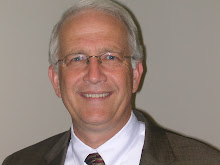4-5-11 Tuesday, 4:23 am Springfield, 31 degrees.
I woke up early with energy and purpose. I will read the final chapter of Isaiah, pray, and get ready to drive to Columbia for the Bishop’s peer mentoring group. If the Concous was not in the shop, I would consider riding it on this trip. It would be a cold first leg, but the forecast is for sunny and warmer today and tomorrow. Alas, I will drive the boring LHS, whose oil I changed last night.
Isaiah 66
Verses 1-6 “are a judgement passage coming abruptly after the preceeding hope passage. …The judgement pronounced here is on those who are depending on externals for their relation to God. Inevitably, when this attitude prevails, cultic behavior comes to be an end in itself. … The hope for Israel’s future is not in cultic manipulation, but in repentance and faith in the power of God to enable us to live truly righteous lives.” (Oswalt, 665-666) As I finish my chapter by chapter devotional study of this great prophet Isaiah, I am reminded of my life-long assertion that the Old Testament prophets have much to say to the mainline protestant churches. This tension that Oswalt writes about is present in the church today. I think it could be a contributing factor to the church’s struggle over worship style – “cultic manipulation”. I have observed since the 1960s people who have more passion about style of worship than they do about their relationship with God.
This chapter is one of hope and promise that all people, all nations and tongues shall be gathered to God’s holy mountain (verse 20). Radically, this prophet even states that from the gathered gentiles God will “take some of them for priests and for Levites”. This seems to refer to those of us who follow Christ, not from within Judaism but from beyond, as we declare God’s glory among the nations.
Commenting on verse 19 Oswalt poses the question “Will the people declare the glory of God to the nations, or will they be so seduced by the glory of the nations that they will abandon their God?” (page 689) This is a pertinent question for today, as followers of Christ must navigate the culture of nations and alliances and determine how to be loyal to God within the context of being citizens of the world.
Lord, I give you thanks for your servant Isaiah and the message he proclaimed to his people, recorded and available to me. I thank you for those who have digested this book, like Oswalt, and offer commentary and application. Guide me as I labor in your Word and prayer, seeking to deliver to your people and the nations the message you are giving to your church through this pastor. As I meet with our bishop and other pastors today, and church leaders from across the country tomorrow, guide me as I live this day in the shadow of your wings, with the hope of your glorious future and your call to serve in this present day.
Tuesday, April 5, 2011
Subscribe to:
Post Comments (Atom)

No comments:
Post a Comment